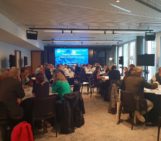
From Monday to Thursday during the week of #shareEGU20, the Early Career Scientists in our various Divisions are going to host a series of evening networking events. Find out more by clicking on the ‘Networking’ session search in the EGU Programme. If you are wondering if these events are for you, check out the Division description by the hosts included below. Every day this week we will be featuring the Divisions who are hosting events, and also adding a description of the other Divisions – in case you come across them in the week and wonder what they are all about.
Thursday 7 May 2020, 19.00 CEST: Networking with the ECS of the GMPV and TS divisions – REGISTER NOW!
Geochemistry, Mineralogy, Petrology and Volcanology (GMPV)
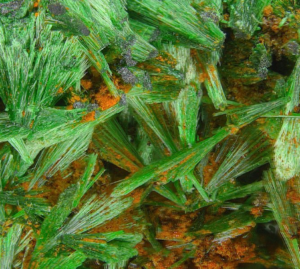
Photo by Zdzisław Migaszewski (from imaggeo)
The Division on Geochemistry, Mineralogy, Petrology & Volcanology (GMPV) includes disciplines that are fundamental to, but not restricted to studies of the solid Earth. Important themes include the nature, composition, structure of the Earth’s mantle; the composition, origin and evolution of the oceanic and continental crust; the formation and crystallisation of magmas; the chemical compositions of igneous, metamorphic and sedimentary rocks; element transfer between the surface envelopes of the Earth; volcanoes and volcanism. While most of these studies fall in the realm of fundamental research, studies of pollution in the surface or subsurface waters, the formation of ore deposits, and the environmental impact of volcanism are examples of more applied research.
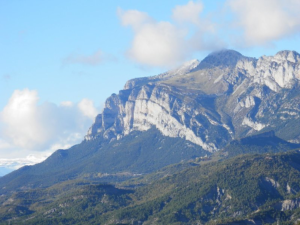
Photo by Pablo Rodríguez Salgado (from imaggeo)
Tectonics and Structural Geology (TS)
The Division on Tectonics and Structural Geology (TS) investigates rock deformation at all scales with the aim to decipher its complex relationships with earth dynamics. We use natural observations, including mapping, remote sensing and seismics, and experimental methods. The division is highly interdisciplinary, with strong ties with other EGU divisions including (GD), (EMRP), (SM), (SSP), (GM), (G), and (GMPV). Does this sound interesting to you? Come chat with us in the TS Virtual Reception on May 4th, 2020 at 7 pm!!
Thursday 7 May 2020, 19.00 CEST: Networking with the ECS of the OS and SSP divisions – REGISTER NOW!
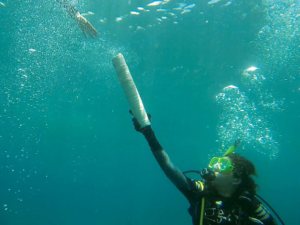
Photo by Isaac Kerlow (from imaggeo)
The Ocean Sciences (OS) Division has the major objective to provide an attractive and productive environment for scientists from Europe and all over the world to gain progress in the various ocean science disciplines and have beneficial interactions with other fields of geosciences. For that purpose, we organise with the teams of conveners the ocean science part of the program of the scientific conference that his held every year during the EGU General Assembly. We give special attention to topics cross-cutting with those of other divisions. We recognise deserving colleagues in various stages of their careers with our Award program: the division awards the Fritdjof Nansen Medal to mid or full career scientists and the Outstanding Early Career Scientists Award for researchers in the early stages of their careers. We also award prizes to outstanding student posters at every General Assembly. The division maintains very strong links with the EGU Publications Committee, and especially with the board of editors of the open access journal Ocean Science (OS). The division also collaborates with other EGU committees in the organisation of relevant topical conferences and summer schools.
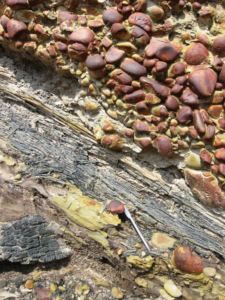
Photo by Maryam Mirzaloo (from imaggeo)
Stratigraphy, Sedimentology and Palaeontology (SSP)
The Stratigraphy, Sedimentology and Palaeontology (SSP) Division covers research in all aspects of these fields, spanning the Precambrian to Recent. From ancient microbes to human evolution; from Snowball Earth to the Little Ice Age, the SSP Division has sessions devoted to solving geoscience problems and method development. This includes lab- and field-based research in the following fields: palaeoclimate, palaeoceanography, geochemistry, biogeochemistry, micro- and macro- palaeontology, evolution, taphonomy, taxonomy, palaeoecology, sedimentology, clay mineralogy, palaeoenvironmental reconstruction, eustacy, salinity and salt deposition, cyclo-, chemo- bio- and sequence stratigraphy; geochronology, limno- and carbonate geology, diagenesis, sedimentary systems…and more.
Thursday 7 May 2020, 19.00 CEST: Networking with the ECS of the SSS division – REGISTER NOW!
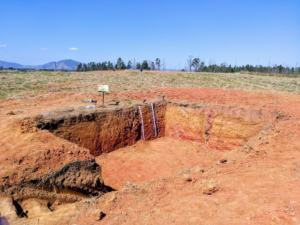
Photo by Alba Catalán Merlos (from imaggeo).
Soil is the interface between the crust and atmosphere, and is the basis of life on Earth. The impact of soil science to the society has probably never been as high as it is currently. The importance of soils in the Earth system must make us, the soil scientists, more noticeable at the EGU. The aim of the Division on Soil System Sciences (SSS) is to coordinate the EGU scientific programme on soil science and related activities. The SSS contributes actively with EGU by promoting scientific interchange and dissemination of activity carried out by members.
In addition you might come across this Division during the week; meet the Solar-Terrestrial Sciences Division.
Solar-Terrestrial Sciences (ST)

Photo by Mingna Wang (from imaggeo)
The Division on Solar-Terrestrial Sciences (ST) considers all aspects of solar and heliospheric physics, specifically the solar-terrestrial connection. It covers the physical processes occurring on the Sun, in the solar wind, as well as in Earth’s magnetosphere and ionosphere. Solar activity (e.g. coronal mass ejections, solar flares, solar energetic particle events) and the response of the near-Earth space environment to these solar phenomena are studied on a wide-range of temporal and spatial scales. Data analysis and interpretation of space-borne and ground-based data, as well as theoretical studies and different modelling techniques are used to better our understanding of how our local star defines the neighbourhood that we live in.
Due to the ongoing coronavirus outbreak, EGU has made the decision to cancel this year’s physical General Assembly in Vienna and instead offer a partial alternative meeting online, called #shareEGU20. Over the next few weeks in the run up to #shareEGU20, which will be held from the 4 – 8 May 2020, we will be posting regular updates and information about how to get involved, what EGU can offer during this week and how to find each other. We know that there will be many, many questions that people have, and we are learning how to do this right along with you, so please send us your questions over social media or by emailing egu2020@copernicus.org or info@egu.eu. We’re looking forward to sharing EGU with you, online!

